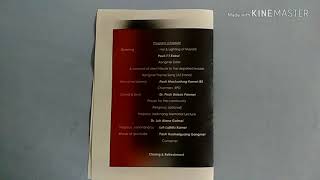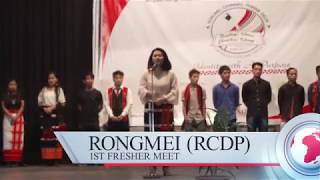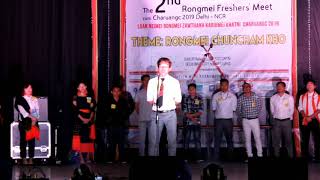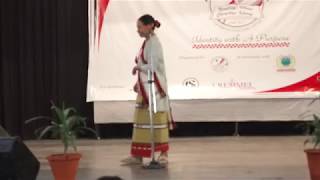Monday, 12 January, 2026г.
















Где искать: по сайтам Запорожской области, статьи, видео ролики
пример: покупка автомобиля в Запорожье
The 87th Anniversary of Haipou Jadonang Martyrdom Day
INVITATION
The 87th Anniversary of Haipou Jadonang Martyrdom Day
29th August 2018
3 PM
DDA Community Hall Safderjung Enclave
Resource Person : Dr. Alana Golmei (Founder Director, PANN NU FOUNDATION & General Secretary, Northeast Support Centre & Helpline)
Master of the Ceremony: K Gaisinlung
Convener : Huaineiguang Gangmei
Organized by: Rongmei Phwam Delhi (RPD) & Rongmei Chamnac Phwam Delhi (RCPD)
Haipouc Jadonang
Jadonang or Haipouc Jadonang (1905-1931) as his adoring people would
like to address him with ‘honour’ and ‘reverence’, is one of the most
enigmatic personalities in the culturally mosaic Northeast India. Due to
undocumented and scanty literature, little has been known about him
especially by the outside world which makes him a mysterious person.
The mystic aspect of his personality has further added to the confusion.
Born in a humble peasant family in 1905 at Puiluan (or Puilon) village
in the present day Nungba Sub-division in Tamenglong district of
Manipur, Jadonang belonged to the Malangmei clan of the Rongmei
Naga tribe. From his early years he was a keen observer who grew up
to understand the social, cultural and political nuances of society. This
made him understand the spirit of nationalism and the importance of
political movements. To the contemporary world, Jadonang was an
unknown Naga rebel whose revolt against the regime of the British,
taxation and otherwise, was nipped in the bud. Indeed Haipou Jadonang
was a mystic rebel who galvanized a movement against British
imperialism and cultural invasion of the west and started a ‘Heraka
religion’ to fight against such cultural and religious encroachments.
His concept of ‘Naga Raj’ or the proclamation of “Makam Gwangdi”
brought him to a head on clash with the British government in the early
1920’s and which earned him the recognition as a pioneer in the Naga
political movement in India. He openly defied the colonial rule and
raised his infamous “no tax campaign” for which he was arrested but
soon had to be released again due to huge public outcry. Sensing his
rise in popularity on account of his growing movement, Jadonang was
soon falsely implicated in the murder of four traders by the then British
Political Agent J.C. Higgins. He was hanged to death on the 29th of
August 1931 at Imphal. J.P. Mills, a very well-known Anthropologist
who had wide knowledge of Naga affairs (and who was also one of the
Political Agents serving in the then Naga Hills during that time),
described Jadonang as the “Messiah King” of the Nagas. This term was
subsequently, popularized by Lady Nancy Astor, a great champion of
feminism and who was also the first lady Member of the British
Parliament. Today, Haipou Jadonang is best remembered for his
courage and vigour who fought against the British colonial forces,
cultural imperialism, and for his campaign to protect and preserve
traditional or indigenous culture of his people. The present generation
identifies him as a true patriot and a great social reformer who withstood
against all odds.
Похожие видео
Мой аккаунт


 У вашего броузера проблема в совместимости с HTML5
У вашего броузера проблема в совместимости с HTML5


